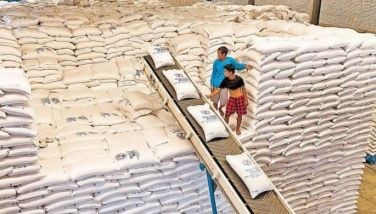Dengue now a global threat, affects 1.8 billion in RP, Asia Pacific -WHO
MANILA, Philippines - The World Health Organization (WHO) has reported that dengue has become a global health threat with 1.8 billion people in the Philippines and other countries in the Asia Pacific vulnerable to the disease.
WHO said that in the past 10 years, the frequency and size of dengue outbreaks in the Western Pacific Region, including the Philippines, have risen.
The Lao People’s Democratic Republic and the Philippines were the most affected.
Of the estimated 2.5 billion people susceptible to dengue globally, about 1.8 billion live in Asia Pacific countries.
Dr. Shin Young-soo, WHO’s regional director for the Western Pacific, said governments in the region need to invest in greater advocacy and better clinic management of the disease.
“National resources need to be mobilized to sustain dengue prevention and control, and the disease’s profile needs to be raised on the global health agenda to stimulate the interest of international agencies and donors,” Shin said.
The rise in dengue cases globally has been attributed to global warming, but there is still no clear evidence for this claim.
The WHO, however, said changes in the climate contribute to the increase of the dengue-carrying Aedes aegypti mosquito.
Dr. Hans Troedsson, WHO’s director for Program Management in the Western Pacific Region, said governments must take a broad approach to suppress the spread of the disease, such as focusing on urban planning and sanitation.
- Latest
- Trending
































